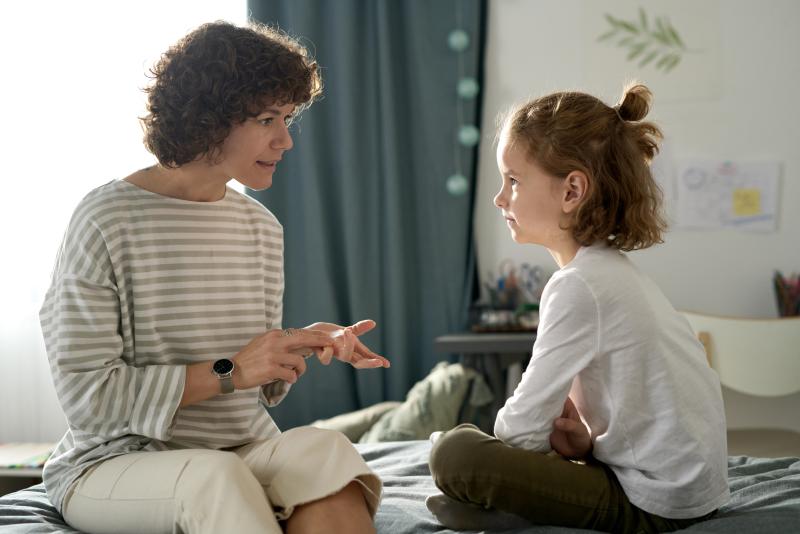Breaking The Cycle: How Positive Childhood Experiences Protect Against Trauma
RadioEd production assistant Madeleine Lebovic chats with associate professor of psychology Angela Narayan about the surprising science behind reflecting on positive childhood experiences—and how it can help parents counter childhood adversity.

Hosted by Jordyn Reiland and Emma Atkinson, RadioEd is a triweekly podcast created by the DU Newsroom that taps into the University of Denver’s deep pool of bright brains to explore the most exciting new research out of DU. See below for a transcript of this episode.
This week, production assistant and DU graduate student Madeleine Lebovic steps in to host.
Show Notes
When Hollywood paints a picture of childhood, it’s often one of nostalgia-tinged wonder. Playing outside, moments of carefree innocence and the highs and lows of the adventure of self-discovery.
But this is not the childhood that everyone experiences. For many, childhood was a place of uncertainty and fear. And when those kids grow up to become parents, those hard realities can impact their own parenting.
How can we break those cycles of intergenerational trauma? This week on RadioEd, Madeleine Lebovic chats with Associate Professor of Clinical Child Psychology Angela Narayan about the surprising science behind reflecting on positive childhood experiences – and how it can help parents counter childhood adversity.
Angela Narayan, PhD, LP, is an Associate Professor in the Clinical Child Psychology PhD Program in the Department of Psychology at the University of Denver (DU). She is also an Adjunct Assistant Professor in the Department of Psychiatry at the University of California, San Francisco (UCSF). She received her PhD in Clinical Child Psychology from the Institute of Child Development at the University of Minnesota and completed a predoctoral internship and post-doctoral fellowship in the Department of Psychiatry and Child Trauma Research Program at UCSF. Narayan directs a program of research that examines how childhood adversity and positive childhood experiences have enduring effects on development across adolescence, adulthood and parenthood. She is particularly interested in understanding intergenerational pathways of adversity, psychopathology, and resilience in populations with diverse backgrounds.
Narayan is a licensed clinical psychologist in Colorado and a clinical supervisor in the Center for Child and Family Psychology (CCFP) in the DU Department of Psychology. Her expertise is in trauma-informed therapies (e.g., Child-Parent Psychotherapy, Trauma-Focused Cognitive-Behavioral Therapy) and relationship-based and parent-focused treatments (e.g., Parent Management Training, Interpersonal Psychotherapy).
She also directs the DU Department of Psychology’s PROTECT Lab where researchers study the intergenerational transmission of risk and resilience across families and generations. Links to different versions of the Benevolent Childhood Experiences scale, used to assess positive experiences in childhood, can be found under instruments.
More Information:
Positive childhood experiences predict less psychopathology and stress in pregnant women with childhood adversity: A pilot study of the benevolent childhood experiences (BCEs) scale by Angela Narayan et al.
A multisystem, dimensional interplay of assets versus adversities: Revised benevolent childhood experiences (BCEs) in the context of childhood maltreatment, threat, and deprivation by Angela Narayan et al.
Relationship of Childhood Abuse and Household Dysfunction to Many of the Leading Causes of Death in Adults: The Adverse Childhood Experiences (ACE) Study by Vincent J Felitti, MD, FACP et al.
Information on ACEs from the CDC



